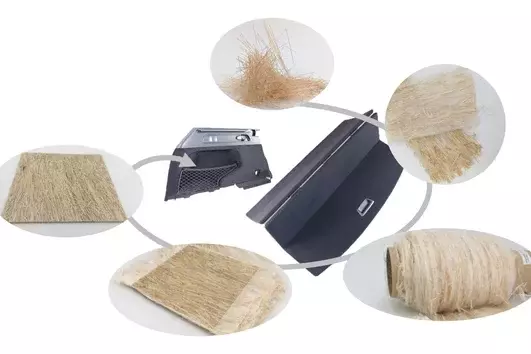Dresden University: Biodegradable instead of petroleum-based plastics
In the “Lignowool_2” project, researchers at Dresden University of Technology (TU Dresden) are developing a composite material made from wood wool and biodegradable, textile plastic fibers. The so-called lignowool composites represent a sustainable alternative to petroleum-based plastics. In future, they are to be used in the automotive industry for door panels and trunk floors, for example. “Lignowool_2” will run for two and a half years and is funded by the German Federal Ministry of Food and Agriculture.

Due to its lack of malleability and low strength, conventional wood wool is currently not used beyond everyday areas such as as a cushioning filling and padding material in packaging. With the production of lignowool composites, the Dresden scientists at the Chair of Wood Technology and Fiber Materials Technology, together with the Institute of Textile Machinery and High Performance Materials Technology (ITM) and various practical partners, want to open up a new field of application for wood wool. In the first phase of the project, the technological feasibility of the composite materials was demonstrated. Now the knowledge gained is being implemented. Through targeted scoring and precise cutting, technical wood wool with previously unattainable properties is created from solid wood. This is then combed with biopolymer fibers in a carding machine and thus structured. Further textile-technical process steps lead to pressable blanks, the so-called wood wool thermoplastic tapes. In the project, these are processed into prototypes for the aforementioned automotive applications.
“The technical wood wool we process retains its typical wood properties. It is more stable than the previously established wood wool and has a high formability. It is also reproducible and can be processed using textile technology,” explains Sebastian Siwek, who is responsible for the project. “By developing composites, we are closing a gap in the field of wood-based materials and increasing resource efficiency through a more holistic utilization of wood.” The project team is planning an industry-oriented pilot plant to test the process for broad application, further develop the wood wool manufacturing process and improve the combination of the various processing steps.
The project leader of “Lignowool_2” is the Agency for Renewable Resources (Fachagentur für Nachwachsende Rohstoffe e.V.).